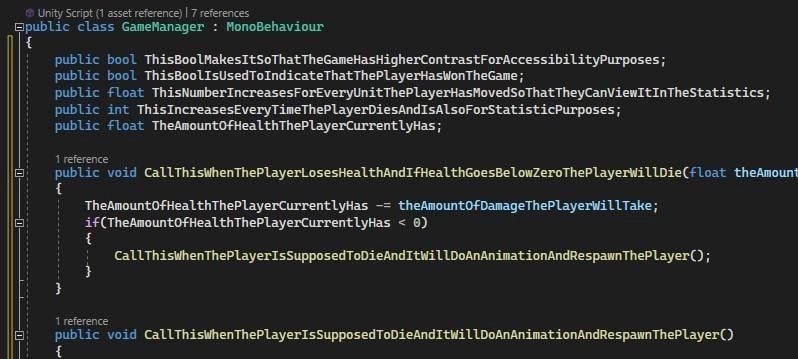this post was submitted on 28 Mar 2024
616 points (98.1% liked)
Programmer Humor
33546 readers
409 users here now
Post funny things about programming here! (Or just rant about your favourite programming language.)
Rules:
- Posts must be relevant to programming, programmers, or computer science.
- No NSFW content.
- Jokes must be in good taste. No hate speech, bigotry, etc.
founded 5 years ago
MODERATORS
you are viewing a single comment's thread
view the rest of the comments
view the rest of the comments

I genuinely believe something like this is what some of my professors wanted me to submit back in school. I once got a couple points off a project for not having a clarifying comment on every single line of code. I got points off once for not comment-clarifying a fucking iterator variable. I wish I could see what they would have said if I turned in something like this. I have a weird feeling that this file would have received full marks.
Did you have my professor for intro to C? This guy was well known for failing people for plagiarism on projects where the task was basically "hello world". And he disallowed using if/else for the first month of class.
Reminds me of an early Uni project where we had to operate on data in an array of 5 elements, but because "I didn't teach it to everyone yet" we couldn't use loops. It was going to be a tedious amount of copy-paste.
I think I got around it by making a function called "not_loop" that applied a functor argument to each element of the array in serial. Professor forgot to ban that.
That is aggravating. "I didn't teach the class the proper way to do this task, so you have to use the tedious way." What is the logic behind that other than wasting everyone's time?
Teaching someone the wrong way to do something frequently makes the right way make way more sense. Someone who just copy/pasted 99 near identical if statements understands on a fundamental level when, why, and where you use a for loop much more than someone who just read in the textbook "a for loop is used to iterate elements in a collection".
Reminds me of a dude that wrote the equivalent of this in Visualg (a brazilian pseudocode language and program, meant solely for teaching programming)
That the thing ran and didn't complain about the amount of loose/needless if's checking fuck all baffles my mind to this day.
And if I know the right way of doing it I already understand why it's better because I want to use it in this situation. Making the students who already understand the lesson do it the wrong way is just a waste of their time.